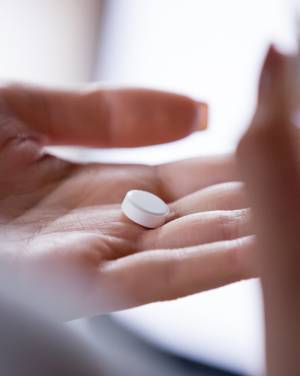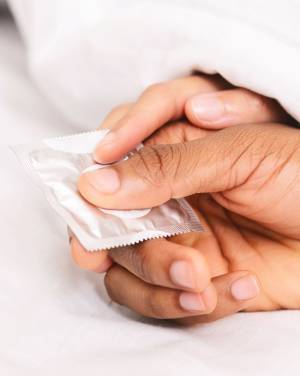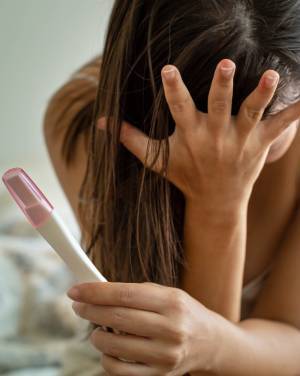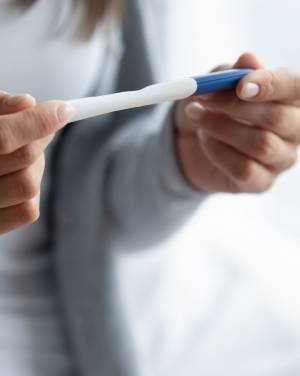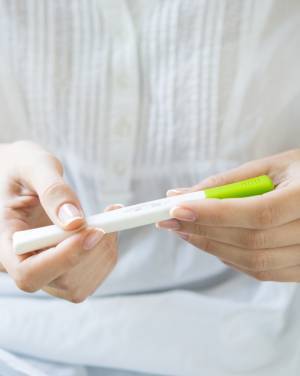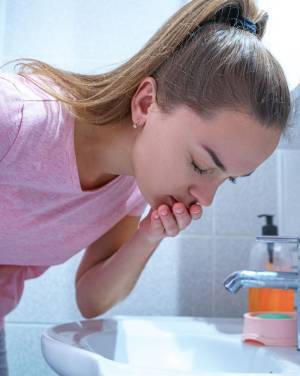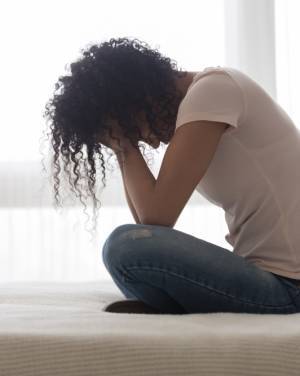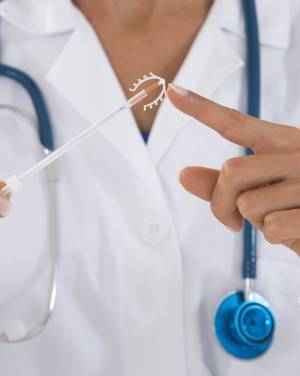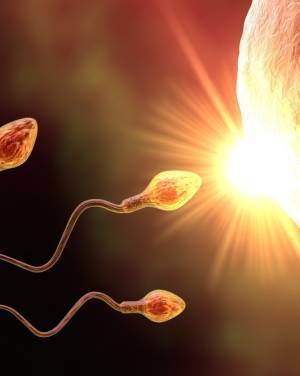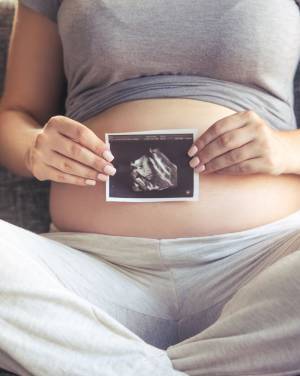FAQs on Emergency Contraceptive Pills (ECPs)
- The morning-after pill is considered emergency contraception. It provides a high dosage of hormones intended to delay ovulation so that fertilisation cannot occur. It can be taken after unprotected sexual intercourse and is most effective when used within the first 24 hours. If ovulation has already taken place, the morning-after pill may not be able to prevent pregnancy.
- Perhaps you are considering taking the morning-after pill and would like more information. Or you recently used it, and now you wonder whether you could still be pregnant?
- This page provides essential information about the morning-after pill, its possible side effects and important considerations before and after taking it.
💊 Should I take Plan B? — Test
Morning-After Pill – Quiz
Is the morning-after pill is right for me? Answer three multiple-choice questions and receive an immediate evaluation!
Your Questions Answered About the Morning-After Pill
The morning-after pill is intended as backup contraception to guard against pregnancy after unprotected sex. In other words, the morning-after pill is used in one-off cases where contraception failed or was forgotten. Because of its high hormone content, Plan B should only be utilised as an exception in an 'emergency.'
The morning-after pill, aka Plan B, is not the same as the contraceptive pill you take regularly. Refer to the most common FAQs below for information on the morning-after pill.
-
Your Self-Assessment
1. What is the Morning-After Pill
2. How Does the Morning-After Pill Work?
3. What Are the Instructions for Taking the Morning-After Pill?
4. Are There Side Effects?
5. When Shouldn't You Take the Morning-After Pill?
6. What Happens When You Take the Morning-After Pill?
7. How Do I Get the Morning-After Pill?
8. How Much Do Emergency Contraceptive Pills Cost
9. I Still Have Questions or Concerns
1. What Is the Morning-After Pill?
The morning-after pill is a drug that contains a high dosage of hormones.
It can be used after contraceptive failure or unprotected sex to prevent pregnancy.
The primary purpose of the morning-after pill is to prevent or delay ovulation. The sooner it is taken after unprotected sex, the greater the likelihood of this being achieved.
2. How Does the Morning-After Pill Work?
There are two types of morning-after pills:
- Plan B — active ingredient levonorgestrel (aka Levonelle®, Postinor®)
- Ella — active ingredient ulipristal acetate (aka ellaOne®)
Plan B
The active ingredient of Plan B is levonorgestrel. This is a synthetic version of progesterone, i.e. the artificially produced sex hormone progestin. The primary effect of levonorgestrel is the suppression or delay of ovulation. It may also reduce fallopian tube mobility and thin the uterine lining.
Plan B can be taken within 72 hours (3 days) following unprotected sex.
It can be used at any point in the menstrual cycle but does not always prevent ovulation.
If the morning-after pill with the active ingredient levonorgestrel is taken before ovulation, the release of an egg cell will be temporarily suppressed. Thus, fertilisation cannot take place, and pregnancy is prevented.
If ovulation has already taken place when using the morning-after pill (levonorgestrel), conception is possible. However, it cannot be ruled out that this medication may keep the fertilised egg from implanting in the uterus.
Ella®
The active ingredient in the morning-after pill Ella® is ulipristal acetate.
Ella's primary purpose is to suppress or delay ovulation so that fertilisation cannot occur, thus preventing pregnancy.
Ella® can be taken within 120 hours (5 days) of having unprotected sex.
If Ella is taken after ovulation has already taken place, conception is possible, but Ella may prevent the fertilised egg from implanting in the uterus. New study results¹ show that ulipristal acetate makes the uterine tissue inhospitable and thus unsuitable for implantation of the embryo.
Ulipristal acetate is a 'selective progesterone receptor modulator.' This means that it inhibits the reception of progesterone — the hormone necessary to maintain a pregnancy.
3. What Are the Instructions for Taking the Morning-After Pill?
A single dose of the morning-after pill is sufficient within one menstrual cycle. However, taking other medications can make the morning-after pill less effective. Hormonal contraceptives can be taken after using Plan B but must be paused for five days after using Ella.
The morning-after pill must not be used if you are allergic to the active ingredients levonorgestrel or ulipristal acetate, or any other ingredients contained in this medication. For more information, consult the package insert.
Consult your doctor or pharmacist if you have any questions regarding the morning-after pill and its suitability.
4. Are There Side Effects?
Various side effects are possible from taking the morning-after pill due to the resulting hormonal imbalance, e.g. irregular menstrual cycle and delayed menstruation.
Some women experience spotting and intermenstrual bleeding or other changes in their cycle.
Side effects of the morning-after pill include:
- A possible delay or irregularity in the following cycles
- Headache
- Dizziness
- Nausea and vomiting
- Abdominal pain
- Breast tenderness
- Flu-like symptoms
- Mood swings; anxiety
If a pregnancy is already present from a previous sexual encounter, taking the morning-after pill is not recommended. Should this be a possibility, taking a pregnancy test is advisable before using the morning-after pill.
Check the leaflet that came with the medication for other possible side effects and contraindications, or consult your doctor or pharmacist.
5. When Shouldn't You Take the Morning-After Pill?
Ask your doctor or read the package insert for precise and detailed information. This article only addresses some of the main points:
Neither medication should be taken if allergic to any of the ingredients. It is also not recommended when one's period is overdue or if experiencing other possible symptoms of pregnancy (breast tenderness, morning sickness, etc.), as a pregnancy may already be established.
Levonorgestrel (Levonelle®) is not recommended for women who have had an ectopic pregnancy or inflammation of the fallopian tubes. It is also not recommended for those with a family history of blood clots. It should be avoided if diagnosed with a digestive disease that impairs the absorption of food and medicines or if suffering from a severe liver or small intestine condition.
Ulipristal acetate (Ella®) is not recommended when suffering from severe asthma or a severe liver condition. It should also not be taken if kidney or liver function is impaired. Interactions with some drugs are possible. If you are taking other medications and have questions about drug-drug interaction, ask your doctor or pharmacist.
Caution: It is not recommended to use ulipristal acetate and levonorgestrel simultaneously (i.e. do not combine Levonelle® and Ella®).
6. What Happens When You Take the Morning-After Pill?
The following processes may take place in the woman's reproductive system after taking the morning-after pill:
a) Delay in egg maturation, causing a postponement of ovulation.
b) Reduced mobility of the fallopian tube inhibits the transportation of the egg cell through the fallopian tube (tubal factor).
c) The mucous membrane of the cervix may thicken, making it less likely for sperm to pass through.
d) If ovulation has already occurred, taking the morning-after pill cannot prevent fertilisation, i.e. pregnancy.
7. How Do You Get the Morning-After Pill?
- In the UK, both types of morning-after pill are available prescription-free for women only. Men cannot buy the morning-after pill for their partner.
8. How Much Do Emergency Contraceptive Pills Cost
- Some pharmacies in the UK offer Levonelle® and ellaOne® for free.
9. I Still Have Questions or Concerns
Perhaps you have already read a lot of information about the morning-after pill but still feel unsure about how to proceed?
Or you've already taken it but are unsure whether you could still be pregnant?
- Receive an initial assessment of whether you could be pregnant by taking our 🤰 Online Pregnancy Quiz.
Our Top Picks for You:
FAQs
-
Yes, the morning-after pill is available over the counter in pharmacies, at most GP surgeries and sexual health/family planning clinics in the UK, including for young people under the age of 16.
Consult your doctor for individualised advice and information about possible side effects. Your doctor can also help you discern whether the morning-after pill is recommended at this stage of your menstrual cycle. -
Depending on the product, the morning-after pill works up to 5 days after sexual intercourse. It is not intended to be taken before sexual intercourse. It should also not be used after each sexual encounter or several times within the same cycle, as its active ingredient is a high dosage of hormones that disrupt the natural cycle. The morning-after pill is only intended as emergency contraception and offers no further contraceptive protection afterward.
-
Many women find that taking the morning-after pill postpones their period. If you want to find out whether you are pregnant, you can take a home pregnancy test as soon as your period is due.
For more information, go to Pregnant After Taking Plan B.


